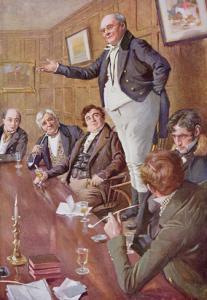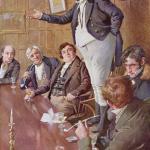At least sometimes I am stupid. I should not confess anyone else’s failure!
I am most stupid when I dialogue with someone else and assume, or pretend, I know that they are foolish or utterly wrong. I see the grit in their mental eye, but miss the log in my own sight.
That is the moment of epic folly on my part. Another soul, created in the image of God, has a passionate belief and I dismiss them, do not hear them, ignore them. That is not merely wrong, but sinfully wrong. As peers in brokenness, our “is” does not match our “ought,” we should find more humility. We really must find more humanity and humility, since our judgement will, eventually, be applied to us.
We cannot survive the standards we apply to “them.”
Why?
For a similar reason my lighters, sometimes very expensive pipe lighters, fail and very cheap lighters do not. The expensive lighters are quite beautiful on the outside, but have no juice on the inside or are overly complicated. They do not light my pipe. On the other hand, my friend will have a very cheap lighter and it will work, always works. Why? It is has lighter fluid and is simple. It just works and when empty has fulfilled function. This is a good lesson for me: better to be simple with fluid than beautiful with none. Yet there is also the parallel truth that my lighter could work, and be elegant, a pleasure to use, if only I refilled the lighter and the engineers had done a better job. The best solution works, lights up, and is beautiful.
We may expect our non-Christian friends to fail, and when that happens we glory in our own beauty. That’s not good, especially when we then make excuses when we do not “light.” Our failure is justified in our own minds, justification by rationalization.
Nonsense.
There is a short Platonic dialogue, Ion, which has Socrates examining an actor, a man who is a bit of a fool, who is named “Ion.” Ion knows his Homer, at least he has memorized Homer, but he cannot think well about the brilliant texts. Still Ion renders them beautifully and that beauty does disclose truths about Homer. On the other hand, Socrates (not at his best!) seems stuck on the fact that Homer was no expert on navigation, chariot racing, or some other craft. (A friend should have confronted Plato about overuse of the “craft analogy.”) Socrates has missed the beauty and truth of the poem, getting stuck on some literal falsities.
The false information matters, a bit, but anyone who reads Homer to learn how to race a chariot also has missed the reason millions will read Homer in 2020: the story is thing that captures us. Is the story true to life? Do people like Paris, betraying his host, cheating his community, ever do good to those who love them? Do good men like Hector ever fail, but win in dying? Socrates seems to miss this point, just as Ion seems unable to think well.
Head, Socrates, and heart, Ion, have become separate and so the epic is lost to the city.
It is not hard to see that all of us do this at times. If our team is losing on the facts, we go poetical hoping beauty will cover for our failure. If our group has the facts, but an ugly reality, then we pound on the facts on the chance nobody with an ounce of humanity will find a new way to view our limited selection of facts. How can I avoid this stupidity?
When I meet an “Ion,” I should ask why his stuff is beautiful and mine is not. When I find a Socrates (as he is portrayed in Ion), I should accept that some of my beautiful work is wrong and fix the errors. The stupidity is in a failure to appreciate beauty or truth. God keep us from both errors.
This is a devotional for the The College program at The Saint Constantine School.













